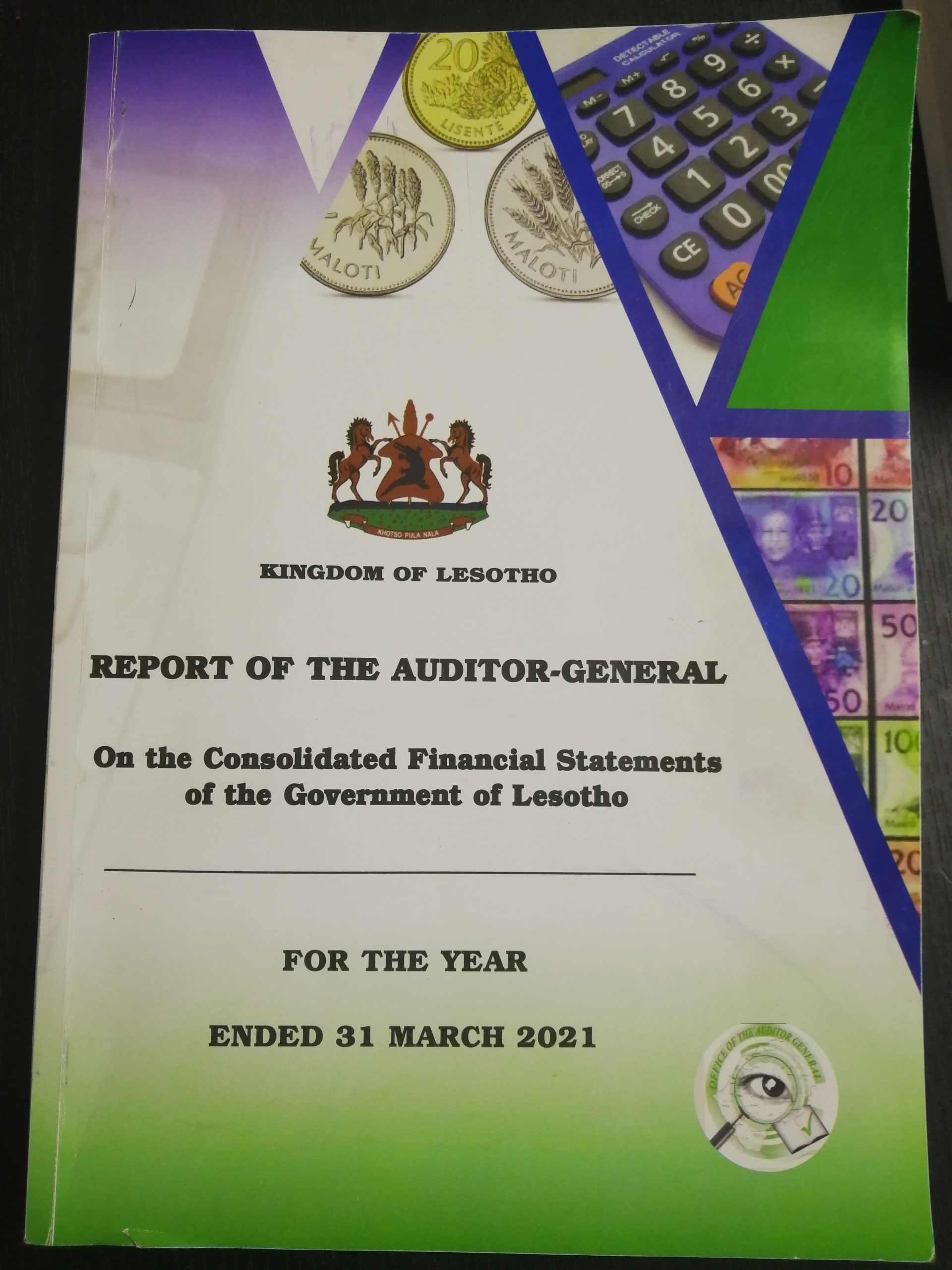Mohloai Mpesi
The African Organisation of Supreme Audit Institutions (AFROSAI-E) on Monday this week started a five-day quality assurance review of Lesotho’s office of the Auditor General.
The office’s spokesperson, Matšepo Mohau, told this publication that the assessment was an effort to enhance the audit performance of the office of the AG and monitor its compliance with the International Standards of Supreme Audit Institutions.
The last review was made in 2017, Mohau said.
The review, she added, will probe, among others, audit standards and the methodology and communication and stakeholder engagement.
Mohau said the review is conducted by the review team comprised of four members from SAI-Zimbabwe, SAI-Ghana and SAI-South Africa and the AFROSAI-E secretariat and led by Laiza Chikowore.
The office of the auditor general was established in terms of section 117 of the constitution which states: “There shall be an Auditor-General whose office shall be an office in the public service.â€
The constitution also recognises the importance and guarantees the independence of the auditor general, stating that in exercising his/her functions “the auditor general shall not be subject to the direction or control of any other person or authorityâ€.
One of the functions of the auditor general is to satisfy himself/herself that all monies that have been appropriated by parliament and disbursed have been applied to the purposes to which they were so appropriated and that the expenditure conforms to the authority that governs it.
AFROSAI-E is a member-based institution with 26 Auditors-General from English-speaking African countries making up the governing board.
The organization was established in 2005 with the shared vision to make a difference in the performance of its member Supreme Audit Institutions (SAIs).
Through the organisation’s executive secretariat, which is hosted by the Auditor-General of South Africa, members are empowered to optimise their audit performance to comply with the Standards for Supreme Audit Institutions (ISSAIs) and to strengthen their institutional capacity to effectively implement their mandate.
“The Quality Assurance Review will be focused on the following elements of AFROSAI-E Institutional Capacity Building Framework model; Independence and Legal Framework, Organisation and Management, Human Resource and others,†Mohau said.
“The review is internal, they have to come to assess how we operate and if we operate basing ourselves with the international standards. They will advise on where to improve and what to change,†she added.
In 2021, the World Bank’s report on the independence of national audit institutions revealed that the office of the AG was one of only 29 auditing authorities in the world which are least independent.
The office of the AG is the supreme audit institution in Lesotho.
The World Bank’s Supreme Audit Institutions Independence Index assessed 118 countries and scored them out of 10, based on indicators such as transparency in the process of appointing an auditor general and financial and staffing autonomy.
The findings from the global assessment showed that only two countries, Seychelles and South Africa, scored 10 and were assessed as having very high independence.
Seventeen countries had high independence, three countries had substantial independence; 37 countries had moderate independence, and 29 countries including Lesotho had low independence.
Lesotho, the Democratic Republic of Congo (DRC) and Madagascar were the only Southern African Development Community Countries (SADC) which received the lowest grade.
The office of the auditor general is also further regulated by the audit act of 2016 which repealed the audit act of 1973 and the audit (statutory bodies) act of 1973.
The 2016 act also provides for the office of the auditor general’s autonomy and independence.
To implement the new act, the office reportedly received technical and financial support from AFROSAI-E, along with the African Development Bank under the Public Financial Management Reform Program in Lesotho.
AFROSAI-E also reportedly assisted in drafting the audit act implementation strategy, revising the office strategy to reflect the new, broader mandate issues, as well as audit act 2016 implementation and post-implementation activities.
According to the constitution, the auditor general has to at least once in every year audit and report on the public accounts of the government, the accounts of all officers and authorities of that government, the accounts of all courts in Lesotho, and the accounts of every commission established by the constitution and the accounts of the Clerk to each House of Parliament.
The AG’s report is submitted to the Minister of Finance “who shall, not later than seven days after each House of Parliament first meets after he has received the report, lay it before that Houseâ€.
Summary
- The office’s spokesperson, Matšepo Mohau, told this publication that the assessment was an effort to enhance the audit performance of the office of the AG and monitor its compliance with the International Standards of Supreme Audit Institutions.
- One of the functions of the auditor general is to satisfy himself/herself that all monies that have been appropriated by parliament and disbursed have been applied to the purposes to which they were so appropriated and that the expenditure conforms to the authority that governs it.
- The office of the auditor general is also further regulated by the audit act of 2016 which repealed the audit act of 1973 and the audit (statutory bodies) act of 1973.

Your Trusted Source for News and Insights in Lesotho!
At Newsday Media, we are passionate about delivering accurate, timely, and engaging news and multimedia content to our diverse audience. Founded with the vision of revolutionizing the media landscape in Lesotho, we have grown into a leading hybrid media company that blends traditional journalism with innovative digital platforms.






